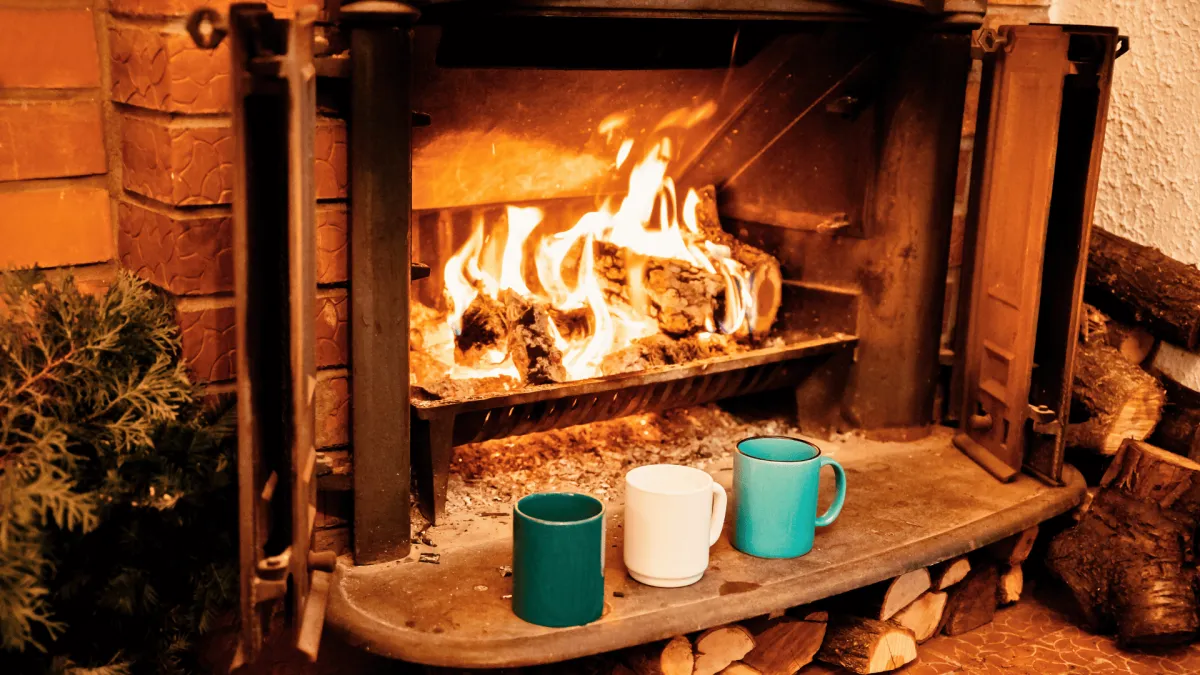
Winter Wellness: Staying Healthy During Cold Weather
Winter can be a beautiful time of year, but it also presents unique challenges to our health, especially for seniors. Cold temperatures, icy conditions, and shorter days can increase the risk of various health issues. However, with the right precautions and a proactive approach, seniors can stay healthy and enjoy the winter season to the fullest.
This blog post will explore essential tips for maintaining winter wellness and ensuring a safe and comfortable winter for older adults.
Staying Warm
Proper Attire:
Encourage the use of layers of clothing, including thermal underwear, sweaters, and warm socks.
Remind seniors to wear a hat, scarf, and gloves whenever they go outside to protect their extremities from the cold.
Suggest wearing waterproof and insulated boots to prevent slips and falls on icy surfaces.

Maintain a Comfortable Indoor Temperature:
Ensure the home is adequately heated to prevent hypothermia.
Use a thermostat to maintain a consistent temperature, typically around 68-72°F (20-22°C).
Consider using space heaters in frequently used rooms, but always prioritize safety and follow manufacturer instructions to prevent fire hazards.
Regularly Check for Drafts:
Seal any cracks or gaps around windows and doors to prevent cold air from entering the home.
Use weatherstripping and caulk to improve insulation.
Consider installing storm windows or using heavy curtains to further insulate windows.
Preventing Falls
De-icing Pathways and Steps:
Clear snow and ice promptly from walkways, steps, and driveways.
Use ice melt or sand to improve traction.
Consider hiring a professional snow removal service.
Increase Visibility:
Ensure adequate lighting both indoors and outdoors.
Use nightlights in hallways and bathrooms.
Consider installing motion-activated lights outside.
Improve Home Safety:
Remove tripping hazards such as loose rugs, cords, and clutter.
Install grab bars in the bathroom and near the toilet.
Use non-slip mats in the bathtub and shower.
Invest in Assistive Devices:
Consider using a cane, walker, or other assistive devices to improve stability and balance.
Consult with a physical therapist to determine the most appropriate assistive devices.
Boosting Immunity
Stay Hydrated:
Drink plenty of fluids, especially water, to stay hydrated.
Dehydration can weaken the immune system.
Consider warm beverages like herbal tea or broth.
Eat a Balanced Diet:
Focus on a diet rich in fruits, vegetables, and whole grains.
Include immune-boosting foods such as citrus fruits, garlic, ginger, and yogurt.
Consult with a registered dietitian or a doctor for personalized dietary recommendations.
Get Enough Sleep:
Aim for 7-8 hours of quality sleep per night.
Create a relaxing bedtime routine to improve sleep quality.
Consult with a doctor if you are experiencing difficulty sleeping.
Manage Stress:
Engage in stress-reducing activities such as deep breathing exercises, meditation, or yoga.
Spend time in nature or pursue hobbies that bring joy and relaxation.
Consider professional counseling or therapy if stress is a significant concern.
Staying Active
Regular Exercise:
Engage in regular physical activity, even during the winter months.
Indoor activities such as walking in a mall, swimming, or water aerobics can be excellent options.
Consider joining a senior fitness class or working with a personal trainer.

Stay Active Indoors:
Engage in light stretching, chair exercises, or tai chi.
Play indoor games such as cards, board games, or puzzles.
Listen to music and dance.
Get Some Sunlight:
Spend some time in the sunlight each day, even on cloudy days.
Sunlight helps regulate the body's natural sleep-wake cycle and can improve mood.
Consider using a light therapy box if you are experiencing seasonal affective disorder (SAD).
Addressing Seasonal Affective Disorder (SAD)
Recognize the Symptoms:
SAD is a type of depression that occurs during the winter months when there is less sunlight.
Symptoms include low mood, fatigue, increased sleep, and changes in appetite.
Seek Professional Help:
If you suspect SAD, consult with a mental health professional.
Treatment options may include light therapy, medication, and psychotherapy.
Connect with Others:
Maintain social connections with friends, family, and community members.
Join a social group or club to combat feelings of isolation.
Volunteer in your community to feel a sense of purpose and connection.
Utilizing In-Home Senior Care Services
Assistance with Daily Tasks:
In-home caregivers can provide assistance with daily tasks such as meal preparation, light housekeeping, laundry, and errands, allowing seniors to conserve energy and focus on their health.
Medication Reminders and Management:
Caregivers can help seniors manage their medications by providing reminders, assisting with administration, and monitoring for potential side effects.
Companionship and Social Interaction:
Caregivers can provide companionship and social interaction, reducing feelings of loneliness and isolation.
They can engage seniors in conversations, play games, and participate in activities.
Fall Prevention and Safety:
Caregivers can help identify and address fall risks within the home environment.
They can assist with mobility, provide support during transfers, and monitor for signs of instability.
Emergency Assistance:
In-home caregivers can provide immediate assistance in case of an emergency, such as a fall or medical issue.
Tips for Caregivers
Prioritize Self-Care:
Caregivers must prioritize their own well-being to effectively care for their loved ones.
Engage in self-care activities such as exercise, relaxation techniques, and spending time with friends and family.
Seek Support:
Connect with other caregivers through support groups or online forums.
Consider respite care services to provide temporary relief and prevent caregiver burnout.
Communicate with Healthcare Providers:
Maintain open communication with the senior's healthcare providers to ensure coordinated care and address any health concerns.
Conclusion
Winter wellness for seniors requires a multi-faceted approach that addresses physical, mental, and social needs. By following these tips and utilizing the support of in-home care services, seniors can stay healthy, safe, and comfortable throughout the winter months. Remember, prioritizing winter wellness is an investment in overall well-being and a key to enjoying a fulfilling and active life, regardless of the season. Don't hesitate to connect with us if you need support to achieve a fulfilling and active winter season for you or your loved ones.
